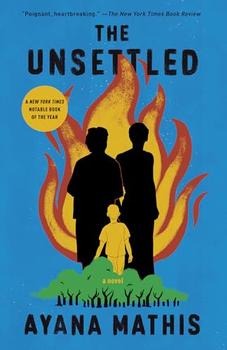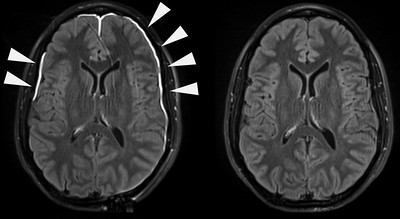Summary | Excerpt | Reading Guide | Reviews | Beyond the Book | Read-Alikes | Genres & Themes | Author Bio

A Novel
by Ayana MathisThis article relates to The Unsettled
 Ava Carson, the protagonist in Ayana Mathis's second novel The Unsettled, is homeless because of domestic violence. At the Glenn Avenue shelter, she can't sleep or eat. She is listless and emotionally paralyzed. Yet Ava never considers that she might have a traumatic brain injury.
Ava Carson, the protagonist in Ayana Mathis's second novel The Unsettled, is homeless because of domestic violence. At the Glenn Avenue shelter, she can't sleep or eat. She is listless and emotionally paralyzed. Yet Ava never considers that she might have a traumatic brain injury.
Researchers who analyzed data from multiple countries, including Canada, the United States, the United Kingdom, South Korea, and Australia, found that 53% of homeless people experience a traumatic brain injury (TBI) in their lifetime.
A TBI occurs when the brain suffers a significant blow, often from a fall, a car accident, or a physically violent act. A moderate to severe TBI is defined by "falling unconscious for a minimum of 30 minutes following the injury, or from suffering a visible injury or showing a lingering disability via an MRI scan." Homeless populations are thought to experience TBIs at 2.3 to four times the rate of the non-homeless.
What is complicated for researchers is the nexus point. Does the injury result from being homeless? Or is being homeless a result of the injury?
In Ava's case, she is already homeless when her face repeatedly crashes into a car window as she is having a violent confrontation with her husband Abemi: "The scratches on Abemi's face welled with blood. Then he was at her neck, hands around her throat, her head wobbling. Her face bashed into the Cadillac's window. Once, twice, three times…Her face was swelling." Ava falls when she runs from the car, tumbling onto the concrete.
A TBI from something like what Ava experiences can be responsible for a variety of issues, like mental health struggles, physical health maladies, substance abuse, and suicidal ideation. TBIs are associated with a higher likelihood of being in and out of the criminal justice system.
Often a brain injury isn't a priority for the homeless because of more pressing needs, like sleeping indoors, food, and employment. In a passage where Ava's eye is nearly swollen shut, Mathis conveys her immediate situation in lyrical writing: "The eye was blood-red, framed with livid purple wings. Her face ached with the effort of talking or moving her head side to side or yawning or chewing. The ache was so bad Ava sent Toussaint over to the A&P where he spent eighty-five cents she could not spare on a bag of frozen peas."
"The fallout from TBI, including concentration, memory, and mood issues, are challenging enough for someone who is connected into the medical system and has a support network," says William J. Panenka, MD, an assistant professor of neurology and psychiatry at the University of British Columbia, "but for people who are barely surviving and have nowhere to go, that is a completely different equation."
TBIs are one of those tricky injuries. If mild, people can recover from them. If moderate or severe, they can trigger a host of problems in the areas of movement, speaking, learning, and more. According to CTV News, Tiffany O'Connor, a PhD graduate in psychology from Simon Fraser University, says that "rates of brain injury are endemic among the homeless and precariously housed so health-care professionals and service providers need standardized training to screen for symptoms of even mild injury involving people often struggling with challenges like mental illness and cognitive impairment."
A study by the University of British Columbia in Vancouver found that falls accounted for 45% of brain injuries, mostly among homeless women, followed by assaults at 25%, particularly affecting homeless men. Professor Tom McMillan of the University of Glasgow explains, "People who grow homeless might understand [the consequences] if they've had a brain injury, and they've been hospitalised, but when they get knocked in the head repeatedly, sometimes in the context of domestic abuse, they fail to understand the cumulative and long-term effects."
Scan showing damage from a mild TBI (left) alongside an image of the brain weeks later, possibly having healed (right)
Courtesy of NIH Image Gallery
Filed under Medicine, Science and Tech
![]() This "beyond the book article" relates to The Unsettled. It originally ran in October 2023 and has been updated for the
June 2024 paperback edition.
Go to magazine.
This "beyond the book article" relates to The Unsettled. It originally ran in October 2023 and has been updated for the
June 2024 paperback edition.
Go to magazine.
Don't join the book burners. Don't think you are going to conceal faults by concealing evidence that they ever ...
Click Here to find out who said this, as well as discovering other famous literary quotes!
Your guide toexceptional books
BookBrowse seeks out and recommends the best in contemporary fiction and nonfiction—books that not only engage and entertain but also deepen our understanding of ourselves and the world around us.